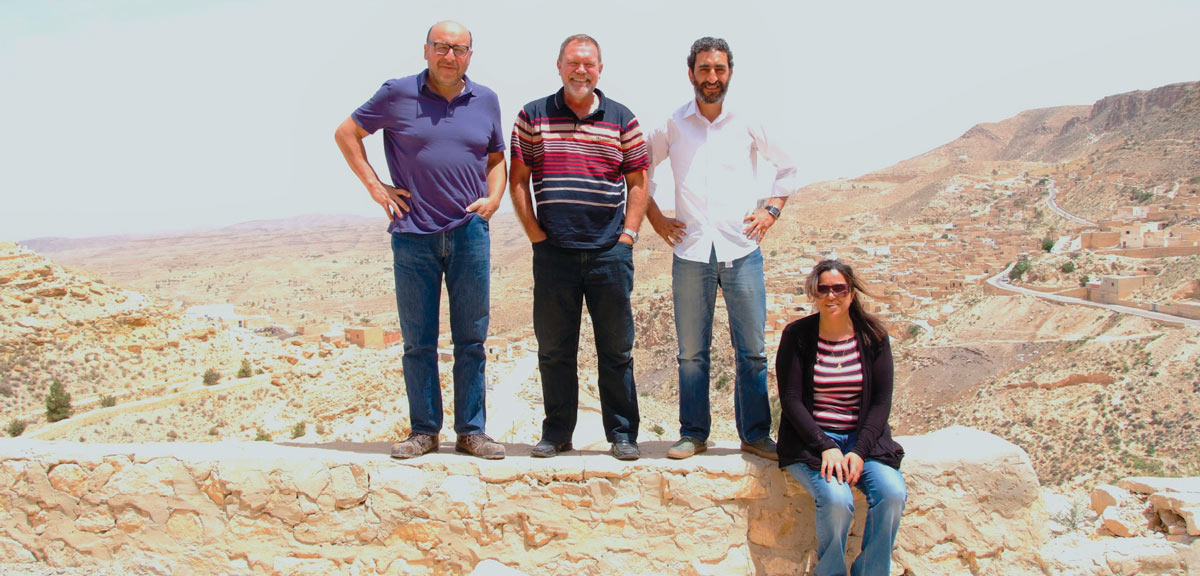Professor Don Cowan, Director of the Centre for Microbial Ecology and Genomics at UP, is heading a series of innovative research projects focusing on the microbiology and microbial ecology of the very extensive soil ecosystems across the African continent.
Their research has shown the associations between plant roots and soil microorganisms (in what is termed the rhizospheric zone) is an important factor in plant growth and productivity.
Soil microorganisms represent a vast and almost completely unexplored genetic resource. As little as a teaspoon of soil may harbour as many as a billion microbial cells from several thousand different species, and different soils may harbour very different microbial communities. The genomes from these organisms represent a huge resource – in providing the information required to understand the function, performance and adaptation of the soil microbial species, but also as a long-term resource for potentially valuable products (such as enzymes, bioactive compounds, antibiotics, and the likes) for a future biotechnology industry.
Professor Cowan’s team has been working on the microbial ecology of the Namib Desert for the past six years, and has already published some 25 papers from these studies. More recently, several new project opportunities have allowed the researcher group to extend their interests into other regions of the African continent, through the award of an NRF South Africa-Tunisia bilateral research grant and, most recently, the initiation of a large intra-African collaborative research programme funded by USAID. The principal aim of all these studies is to obtain a baseline dataset of the microbial diversity in a very wide range of different soil types and different climatic zones across parts of the African continent. A secondary aim is to compare the soil microbial community fingerprints of ‘natural’ soils with the soils of areas under intensive farming practices.
This research project involves researchers from all the partner nations and will use the latest metagenomic sequencing methods and bioinformatics analyses. The results will be a ‘first’ for Africa – there is currently no comprehensive (or even cursory) survey of soil microbiology from any African nation, including South Africa.
On the back of this project, Professor Cowan has established a special research focus group, the African-Arabian Desert Microbial Ecology Network (AADMEN). The group met for the first time in April 2015, and established a set of principles to guide future activities involving joint grant applications, future research collaborations and publications.
 Professor Don Cowan (second from right) and AADMEN colleagues in Tunisia
Professor Don Cowan (second from right) and AADMEN colleagues in Tunisia
